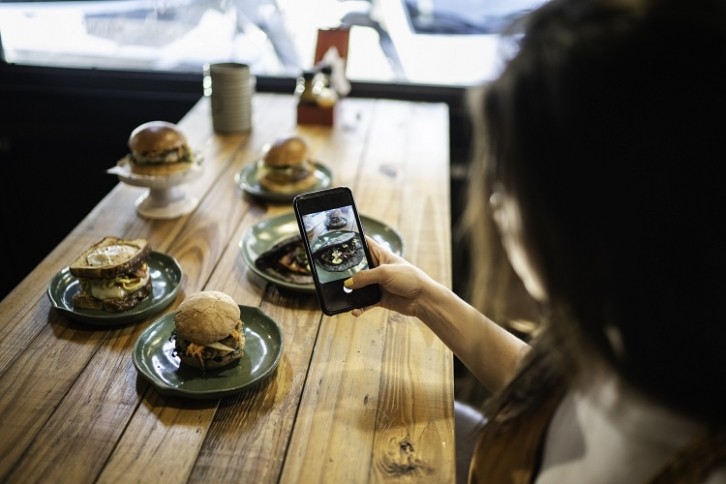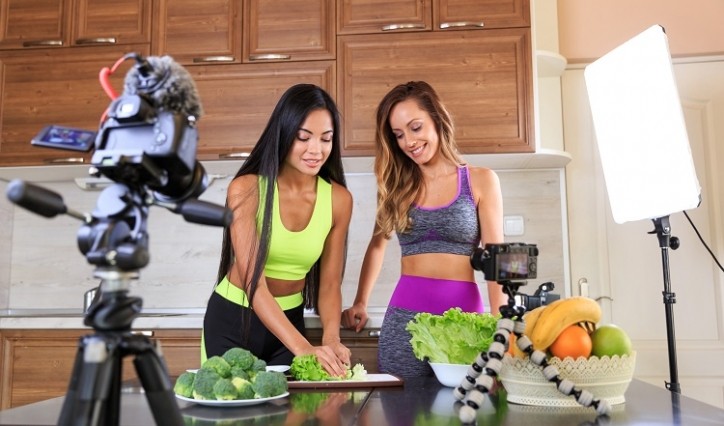Unless you’ve been living under a rock, in the desert, with your eyes closed and earplugs in, then you’ll be well aware of the modern phenomena that is ‘the influencer’. They often address their audience with a sing-song “hi guys”, dress in designer clothes like it’s no big deal and, most importantly, are on a mission to sell sell sell.
But what sets these modern marketers apart is the fact that their audience is often blissfully unaware of the hustle. In fact, a 2012 study conducted by Nielsen, found that a conclusive 92% of consumers across the world trust influencer marketing over traditional advertising.
So how much power do influencers wield over their audience’s lifestyle habits and are they stealthily setting the trends the rest of us live by?
How much power do influencers have over food and drinks trends?
We know for certain that influencers have immense sway over the behaviours of their audience members. But does the sway translate into sales, and ultimately, market trends?
Fitness influencer and campaigner Joe Wicks, better known to many as The Body Coach, is perhaps best known for keeping kids and some of their parents active during the global pandemic in 2020. His 9am classes got everyone moving and put a smile on people’s faces when worries were high and the future uncertain.
But Wicks first came to prominence six years prior to that when he decided to encourage people to eat more healthily with his ‘Lean in 15’ Instagram videos where he talked his millions-strong audience through cooking up nutritious and delicious dinners in just 15 seconds. His videos and cheeky persona quickly won friends and influenced people, with marketing specialist Coregeo saying that his inclusion of the vitamin-rich veggie, tenderstem broccoli in many of his recipes resulted in sales going up by 25% in the UK.
“Influencers hold significant power in shaping the dietary choices and consumption habits of their audience,” Logan King, owner of Natural Foundation Supplements, told FoodNavigator. “Through social media platforms, they can reach a wide audience, influencing trends and introducing new products or dietary practices. Their recommendations can sway public opinion, encourage people to try new foods or beverages, and even change long-standing eating habits. This influence is amplified by the trust and rapport they build with their followers, making their endorsements highly impactful.”

Celebrities: the original influencers
It’s not just the self-styled influencers who have the power to affect foods trends and sales, celebrities are getting in on the action too.
Singer and actress Beyonce is arguably the most powerful influencer of all, though she would likely not identify herself that way, despite her army of devoted fans poised to follow her every move. She famously followed a juice diet, which she told Oprah helped her lose 20 pounds in just two weeks, which led to a rush on sales of the primary ingredient, apple cider vinegar, as adoring fans and those just looking to lose weight, tried it for themselves.
Other celebrities are more proactively using their status to influence market trends, with Idris Elba showing everyone how it’s done, as his investment and endorsement of meal-replacement drink Huel saw sales go from strength to strength.
“I’ve been a Hueligan for several years now, starting my journey while preparing for my role in Thor, so to come on board with Huel was an easy decision. I believe in their mission to deliver nutritionally complete food, sustainably,” said Elba at the time.
Fitness influencers have also been quick to champion Huel, with it’s bold, black lettering and celebrity backers, it appears to have captured the young and trendy market, moving meal-replacement drinks away from being seen only as a weight-loss option and into the mainstream.
Trending on YouTube, TikTok, Instagram and X
The social media platforms themselves are also proving hugely influential, without the specific link to a particular influencer or celebrity. Waitrose recently reported that its feta cheese sales increased by 33% between May and June 2022, following the ‘whipped feta’ TikTok trend, where people were, yes you’ve guessed it, whipping feta to create a creamy spread or dip. The UK-based supermarket now includes TikTok in its annual food and drinks report, showing just how powerful the platform has become in influencing trends and sales. Furthermore, the hashtag ‘food’ has had over 555 billion views on the platform to date.
Furthermore, a 2023 study by ‘the kitchn’ found that 81% of surveyed cooks reported cooking recipes that discover on social media and 97% of those add these discovered recipes to their regular meal rotations.
And it’s not just the recipes that audience members are cooking or the ingredients that they’re buying, which come from social media influence, it’s the cooking utensils and equipment used too. Sales of air fryers skyrocketed during the pandemic, with many viewing them as an efficient and energy saving choice. Now, frozen food brands are developing products specifically for the device while social media influencers are helping the trend along with air fryer-friendly recipes and hashtag-challenges.
Which demographics can best be targeted by social media?
In recent years, influencer marketing has become a rapidly growing industry and a powerful tool for food and drinks manufacturers to sell their products. According to market research firm Mintel, “47% of British adults and 45% of German 16-34-year-olds have purchased products that were promoted by a social media personality.”
Influencers are particularly influential among younger demographics who have grown up in the era of social media and are highly engaged on platforms like Instagram and TikTok.
Mintel’s Technology Trends research has found that half of Gen Z consumers turn to social media platforms, including TikTok and Instagram for recommendations and suggestions before using a search engine such as Google, showing that for many the very first place they look for answers to a question is social media.
In addition to this, Mintel’s research reveals that, “consumers have an increased willingness to give influencers feedback, which can offer brands valuable insight into their preferences and buying habits that weren’t previously freely available.”
However, this places a burden of trust on the influencer though this is not always honoured and respected.
“Influencers have a substantial responsibility to their audience, primarily because their recommendations can have direct implications on their followers’ health, safety, and well-being,” explains Logan King. “The level of responsibility among influencers varies widely. While many are conscientious about their influence and strive to promote products and lifestyles ethically and responsibly, there is still a significant number who prioritise commercial gains over their audience’s wellbeing. The lack of strict regulations and the diverse nature of social media platforms contribute to this variability.”


